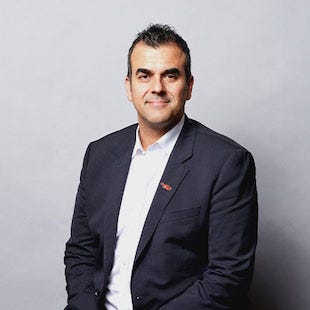An Effective Community Is More Than Just An Online Forum
It is important to develop a strong base of contributors who can communicate effectively, answer questions, and summarize issues.

Like many companies today, our success is dependent on the community of customers and partners that grows around our products and services. This community augments and extends our capabilities with complementary products, places to go to learn more, and people that can answer questions.
It is admittedly challenging to effectively serve this type of community while balancing the needs and resources of a technology innovation company. The members easily outnumber our employees, let alone those able to respond to questions and suggestions. There is also a tendency to rely on numbers -- such as how many members or how many page views -- to quantify the value of the community. In our experience, this leads to misunderstanding the benefits and misallocating the resources necessary to build these relationships into an actual community, not just an online forum.
One of the biggest obstacles to community development is fear, which can lead to too much control and not enough openness to foster solid relationships. This fear could include a fear of open criticism of the company; fear of loss of brand image; or a fear of providing valuable intelligence to competitors. In our experience, and in the experience of many other companies, the benefits of more open communications within the community far outweigh any public criticism or other potential negatives. In our connected world, the conversations and criticisms are happening online, and it is far better to actively participate in them than to try to control them.
Encourage Participation
In most product communities, the majority of participants consume information, a smaller number contribute tutorials and reviews and answer questions, and an even smaller number are development partners. As a result, it is important to develop a strong base of contributors in the community who can communicate effectively, answer questions, and summarize issues.
Another tendency with corporate communities is not allocating enough time and resources, with the thinking that the community will grow and regulate itself. While this may be true in some cases, the contributors are often looking for a stronger relationship with the company, not a hands-off attitude. Depending on the individual, they might want to be part of a focus group, beta test, or Q&A session with technical personnel. Done well, these people become a positive influence within the community, shepherding others, and providing valuable feedback on what the community wants and needs.
Our online community has about 85,000 registered users, and about 5% of these actively post in the forums. With over 2 million page views a month, there are many non-registered users viewing posts and getting answers to their questions. In addition to questions, we get posts on cyberthreats, product issues, feature requests, usage tips, and many other subjects. Active participants are sometimes invited to participate in more focused activities or engagements with product management and senior executives at Intel Security.
Over the last 18 months, we have increased the energy and scale of user outreach, introducing many new communication vehicles and resources. Customers can subscribe to a variety of topics, including product news, best practices, and educational information, and they can search the community archives and product KnowledgeBase.
What do you think? Let us know in the comments section below.
About the Author(s)
You May Also Like
Beyond Spam Filters and Firewalls: Preventing Business Email Compromises in the Modern Enterprise
April 30, 2024Key Findings from the State of AppSec Report 2024
May 7, 2024Is AI Identifying Threats to Your Network?
May 14, 2024Where and Why Threat Intelligence Makes Sense for Your Enterprise Security Strategy
May 15, 2024Safeguarding Political Campaigns: Defending Against Mass Phishing Attacks
May 16, 2024
Black Hat USA - August 3-8 - Learn More
August 3, 2024Cybersecurity's Hottest New Technologies: What You Need To Know
March 21, 2024




